Susan E. Greisen's Blog, page 10
April 28, 2021
Malaria, the Killer
News Release 23-Apr-2021 / University of Oxford
https://www.eurekalert.org/pub_releases/2021-04/uoo-mvb042221.php
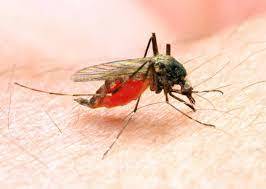 Anopheles MosquitoMalaria vaccine becomes first to achieve WHO-specified 75% efficacy goal
Anopheles MosquitoMalaria vaccine becomes first to achieve WHO-specified 75% efficacy goalResearchers from the University of Oxford and their partners have today reported findings from a Phase IIb trial of a candidate malaria vaccine, R21/Matrix-M, which demonstrated high-level efficacy of 77% over 12-months of follow-up.
When I arrived in Liberia in 1971 as a Peace Corps volunteer, malaria was one of the leading causes of childhood death.
***
Here are excepts from my memoir about how malaria impacted me and my village during my two year stay.
Part V, Gowee, My Village, Chapter, Mortality and Morbidity.
In September 1972, I entered in my diary, “three babies died in our small community today.” Before coming to Liberia, I had never known of a baby or young child who died. In Gowee, infant mortality remained heartbreakingly commonplace. Not all deaths or their causes could be confirmed, with sketchy data collection coming from nearby walk-in villages. Most likely the death rate was even higher due to under-reporting. Malaria, dysentery, measles, respiratory infections, and malnutrition were some of the main causes of mortality in the Zor Clan. “The starving children in Africa,” as my mom used to say at the dinner table, rang true that day. Due to the high infant death rate, a mother often had up to twelve pregnancies with only five living children. With the unavailability of birth control, pregnancy was easy to achieve. Staying alive was not.
…Despite my compulsion to prevent malaria, I contracted the parasite three times in my two short years. My blood tests confirmed I had contracted three of the four types found in West Africa: Plasmodium vivax, P. ovale and P. malariae. Plasmodium falciparum, which affects the brain, is the deadliest, and the only one I did not contract. All Peace Corps homes had screened windows, but when traveling to areas where I did not have that luxury, I used the dreaded mosquito coil, a form of incense that smoldered throughout the night, releasing a stench of caustic smoke to ward off the insects. Nonetheless, screens and mosquito coils had failed me. Luckily, my three bouts of malaria were successfully treated and placed in remission. Only after leaving a malarial area, can the final medication be given to fully kill the parasite. (After I left Liberia, the mutation of the parasite made the current treatment of chloroquine ineffective and a new medication was prescribed.)
***
Even today over 270,000 children globally die every year of malaria. This vaccine news is overdue and will improve the healthcare dramatically once implemented.
I welcome your comments in the reply/comments section below.
April 15, 2021
Icing on the Cake
April is my month; my birth month. It is always special to me. But this one was extra special. I not only celebrated the big seven zero with a some fanfare, but also was the guest author at another Zoom book club (more about that in my next blog). In addition, this was the month I published my memoir a year ago on April 2nd. But on this April 15th I was given a belated birthday gift – or the icing on the cake. No, I didn’t get a big tax refund. Instead, I opened an email and read my name, sixth down, on this list. Read below.
 The Journey Book Awards recognize emerging new talent and outstanding works in the genre of Narrative Non-Fiction and Memoir. The Journey Book Awards is a genre division of Chanticleer International Book Awards and Novel Competitions (CIBAs).
The Journey Book Awards recognize emerging new talent and outstanding works in the genre of Narrative Non-Fiction and Memoir. The Journey Book Awards is a genre division of Chanticleer International Book Awards and Novel Competitions (CIBAs).These titles have moved forward in the judging rounds from the 2020 Journey Book Awards LONG LIST to the 2020 SHORT LIST and now have progressed to the 2020 SEMI-FINALISTS. The Semi-Finalists’ works will compete for the Finalists positions.Chanticleer International Book Awards is looking for the best books for our Journey Awards featuring true stories about survival, overcoming issues, trauma, and threatening life events, along with turbulent personal journeys.
 The following works have advanced in the 2020 Journey Book Awards for Narrative Non-FictionKaren Keilt –
The Parrot’s Perch
Susan E Casey –
Rock On: Mining for Joy in the Deep River of Sibling Grief
Laila Tarraf –
Strong Like Water: Lessons Learned from Leading with Love
Ashley Conner and Cierra Camper –
Memoirs of Michael: The Hurricane Project
Patricia Eagle
– Being Mean–A Memoir of Sexual Abuse and Survival
Susan E. Greisen –
In Search of Pink Flamingos: A Woman’s Quest for Forgiveness & Unconditional Love
Mendek Rubin & Myra Goodman
– Quest for Eternal Sunshine
Janice Morgan –
Suspended Sentence
Marianne Ingheim –
Out of Love: Finding Your Way Back to Self-Compassion
Sharon Dukett –
No Rules
Judy Gaman –
Love, Life, and Lucille
David Crow –
The Pale-Faced Lie: A True Story
Christine Nicolette-Gonzalez –
My Mother’s Curse: A Journey Beyond Childhood Trauma
Scott Hunter –
And the Monkey Lets Go: Memoirs Through Illusion and Doubt
Mary Charity Kruger Stein –
Fatherless, Fearless, Female: A Memoir
Ilene English –
Hippie Chick
Barbara Clarke –
The Red Kitchen
Amy Byer Shainman –
Resurrection Lily: The BRCA Gene, Hereditary Cancer & Lifesaving Whispers from the Grandmother I Never Knew
Tamra McAnally Bolton –
A Blessed Life: One World War II Seabee’s Story
Steve Mariotti –
Goodbye Homeboy
Steve Rochinski –
A Man of His Time: Secrets from a Halfway World
Barbara Clarke –
The Red Kitchen
Tiffani Goff –
Loving Tiara
Kathleen Pooler –
Just the Way He Walked: A Mother’s Story of Healing and Hope
Isaac Alexis M.D. –
The Seductive Pink Crystal
Renee Hodges –
Saving Bobby: Heroes and Heroin in One Small Community
Ted Neill –
Two Years of Wonder
Deborah Burns –
Saturday’s Child
Stefanie Naumann –
How Languages Saved Me: A Polish Story of Survival
Lydia Ola Taiwo –
A Broken Childhood: How To Overcome Abuse: A Recovery Guide
Lilly A Gwilliam –
Generations of Motherhood: A Changing Story
Marilea C. Rabasa –
Stepping Stones: A Memoir of Addiction, Loss, and Transformation
Christine Ristaino –
All the Silent Spaces
These titles are in the running for the Finalists of the 2020 Journey Book Awards for Narrative Non-Fiction.
The following works have advanced in the 2020 Journey Book Awards for Narrative Non-FictionKaren Keilt –
The Parrot’s Perch
Susan E Casey –
Rock On: Mining for Joy in the Deep River of Sibling Grief
Laila Tarraf –
Strong Like Water: Lessons Learned from Leading with Love
Ashley Conner and Cierra Camper –
Memoirs of Michael: The Hurricane Project
Patricia Eagle
– Being Mean–A Memoir of Sexual Abuse and Survival
Susan E. Greisen –
In Search of Pink Flamingos: A Woman’s Quest for Forgiveness & Unconditional Love
Mendek Rubin & Myra Goodman
– Quest for Eternal Sunshine
Janice Morgan –
Suspended Sentence
Marianne Ingheim –
Out of Love: Finding Your Way Back to Self-Compassion
Sharon Dukett –
No Rules
Judy Gaman –
Love, Life, and Lucille
David Crow –
The Pale-Faced Lie: A True Story
Christine Nicolette-Gonzalez –
My Mother’s Curse: A Journey Beyond Childhood Trauma
Scott Hunter –
And the Monkey Lets Go: Memoirs Through Illusion and Doubt
Mary Charity Kruger Stein –
Fatherless, Fearless, Female: A Memoir
Ilene English –
Hippie Chick
Barbara Clarke –
The Red Kitchen
Amy Byer Shainman –
Resurrection Lily: The BRCA Gene, Hereditary Cancer & Lifesaving Whispers from the Grandmother I Never Knew
Tamra McAnally Bolton –
A Blessed Life: One World War II Seabee’s Story
Steve Mariotti –
Goodbye Homeboy
Steve Rochinski –
A Man of His Time: Secrets from a Halfway World
Barbara Clarke –
The Red Kitchen
Tiffani Goff –
Loving Tiara
Kathleen Pooler –
Just the Way He Walked: A Mother’s Story of Healing and Hope
Isaac Alexis M.D. –
The Seductive Pink Crystal
Renee Hodges –
Saving Bobby: Heroes and Heroin in One Small Community
Ted Neill –
Two Years of Wonder
Deborah Burns –
Saturday’s Child
Stefanie Naumann –
How Languages Saved Me: A Polish Story of Survival
Lydia Ola Taiwo –
A Broken Childhood: How To Overcome Abuse: A Recovery Guide
Lilly A Gwilliam –
Generations of Motherhood: A Changing Story
Marilea C. Rabasa –
Stepping Stones: A Memoir of Addiction, Loss, and Transformation
Christine Ristaino –
All the Silent Spaces
These titles are in the running for the Finalists of the 2020 Journey Book Awards for Narrative Non-Fiction. 

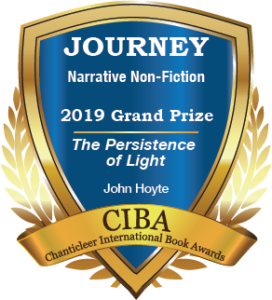 The Semi-Finalists’ works will compete for the First Place Winner positions, and then all will be recognized in the evenings at VCAC21 April 22-24th from 6-8 p.m. PST.
The First Place Category Winners, along with the CIBA Division Grand Prize winners, will be selected from the 23 CIBA divisions Finalists. We will announce the 1st Place Category Winners and Grand Prize Division Winners the CIBAs Ceremonies June 5th, 2021 virtually (Free) and LIVE at the luxurious Hotel Bellwether in Bellingham, Wash.
The Semi-Finalists’ works will compete for the First Place Winner positions, and then all will be recognized in the evenings at VCAC21 April 22-24th from 6-8 p.m. PST.
The First Place Category Winners, along with the CIBA Division Grand Prize winners, will be selected from the 23 CIBA divisions Finalists. We will announce the 1st Place Category Winners and Grand Prize Division Winners the CIBAs Ceremonies June 5th, 2021 virtually (Free) and LIVE at the luxurious Hotel Bellwether in Bellingham, Wash.
****
This is a birthday month I won’t soon forget. I thank so many of you for the wonderful birthday wishes.
February 20, 2021
How Will I Know?
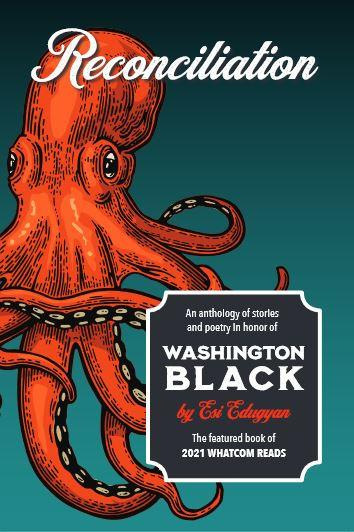
My essay entitled How Will I Know? was accepted in the Whatcom Reads Anthology of stories and poetry entitled Reconciliation. It was published this week. I will be reading a 3 minute excerpt of the essay on 2/21/21 at my local bookstore, Village Books.
This was rewritten from the chapter entitled “Reconciliation” in my memoir, In Search of Pink Flamingos. This anthology helped me to dig even deeper into the meaning of reconciliation and therefore this excerpt below is a new memory of that precious moment with my mom.
Below is a sample.
When and how does forgiveness happen or reconciliation for that matter? If I could achieve it, how will I know when it has been reached?…
…As she blinked, I looked into her eyes. I saw straight through to her soul. She was a mirror of myself. Akin to knowing when you’re falling in love: it is a feeling, a surrender, an epiphany…the moment when the inner souls of two people meet. Our souls joined that day. I felt true and unconditional forgiveness of all that had happened between us. In her semi-conscious state, I believed she sensed it too. At that moment there was an awareness of peace and reconciliation between two needy individuals. It was then I knew.
Mom passed away peacefully and silently in July 2014.
Learn more about the book or purchase it by clicking on this link.
https://www.villagebooks.com/product/reconciliation-whatcom-writes-anthology
February 12, 2021
Zoom Book Club – A Success!

My one-room school teacher, Velma read my book, told her PEO book club members about it, and then procured 12 of my books for her club. On February 10th, 2021 I was invited as the guest author. Kally, Janie and Velma led a robust discussion and Q&A with several of their members living in Arizona. In the screen shot, Velma, now 86, is in the upper left corner and Susan is on the bottom left. Over two hours later, we didn’t want the session to end. Farm life, Catholic upbringing, Liberia, travel, and personal growth were discussed. We also referenced, Karen, my grade school, high school friend (see the Sept. 14th blog with photos about that story). Susan shared her slideshow of her personal journey as well as treasured photos of her and Velma back in the ’50s. You can view those photos in Susan’s May 12th blog entitled “One-room School House and “The Beatles and Mrs. Bartley (AKA Velma Ditter)” on May 26th. These are stories of how one elementary school teacher had such a profound impact on a small child’s life. What a treasure to reconnect with Velma again. Through this fabulous event, Susan has now developed new friendships with this marvelous group of women. Thank you so much!!
Feel free to sign up for Susan’s email list to receive her regular blogs.
January 28, 2021
Ruffles and a Little Red Purse
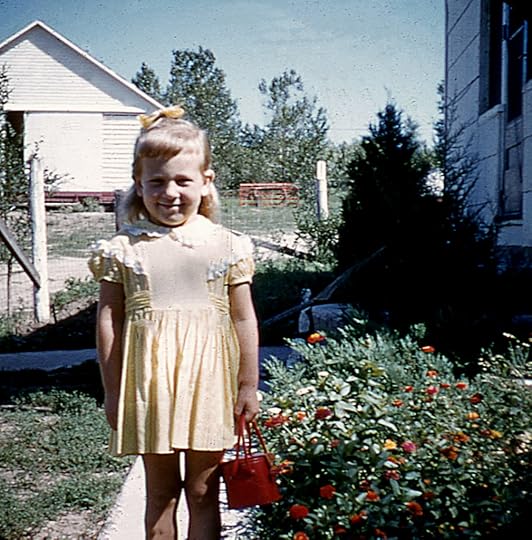
“…the purity and vulnerability of this incredibly earnest child…” is a quote from Christopher Davenport, author of The Tin Can Crucible. His description of little Susan in her memoir is telling. Yet, this was only the beginning.
Susan recently discovered this 1954 photo on a View Master slide in a box of old pictures. Here she stood proud one Sunday morning with puffed sleeves, ruffles, and a little red purse. Her curled blonde hair, topped with a yellow bow, made her feel special. At three years of age, the purity and vulnerability of this earnest innocent child is evident.
Sixteen years later, how did this little girl from a remote farm in Nebraska end up in a small village in West Africa? In that short amount of time Susan developed a true farm grit and determination to defy her parents and joined the Peace Corps? Follow her journey to Africa and beyond in her memoir, In Search of Pink flamingos.
January 4, 2021
SFSU Magazine

My alma mater, San Francisco State University, just published their Fall/Winter 2020 Magazine and I’m now in the who’s who listing for those who graduated in the ’70s. SFSU gave me the best nursing education and I am proud to be one of its alumna.

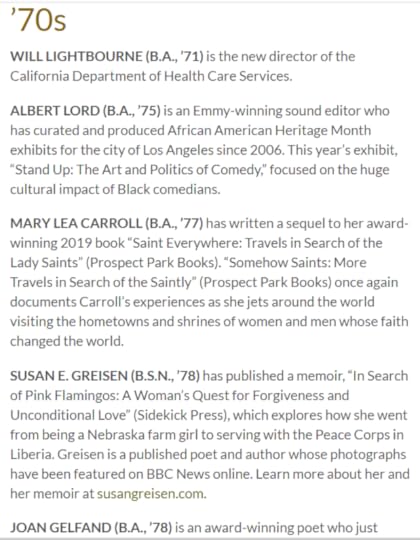
December 26, 2020
Timbuktu, a Place Lost in Time
Forty-seven years ago almost to the day, just before New Years, I was traveling West Africa on vacation from my Peace Corps assignment in Liberia. The iconic Timbuktu was one imperative stop on my route. Following are excerpts from my book of this journey and proof this place really exists.
Part VI: Chapter; Planes, Trains, Boats, Buses, and Taxis
Timbuktu held a reputation in the Western culture as not really a city or town, but an expression for a distant or outlandish place. Timbuktu was not only a real city, it possessed a rich past as a regional trade center on the trans-Saharan caravan route in the 12th century, flourishing with its commerce of gold, salt, ivory, and slaves.…During that prosperous time, its population grew to an estimated 100,000. I had to see this place called Timbuktu.
Once I arrived by taxi and riverboat here is what my three new tourist friends and I found. Expert from Chapter; Timbuktu, a Place Lost in Time.
At midmorning, Timbuktu was nearly devoid of people or animals. I didn’t see one green thing, not one blade of grass, and only spindly leafless trees dotted the horizon. We walked the sand-covered streets, which reminded me of snowdrifts on the Nebraska farm. At least our snowstorms and blizzards were seasonal; in the Sahara, people dealt with sand and wind every day. Timbuktu became a white-out of sand. The sand blended with the homes, the homes melded with the streets, the streets blurred with the sky as it swirled with sand that fell back to the earth again. A few women and children swept the drifted sand away from their front doors, hoping to prevent the Sahara Desert from claiming another victim. With a population of under 2,000, Timbuktu was no longer a thriving hub of trade and literature, but instead a seemingly impoverished village gradually being consumed by the Sahara.
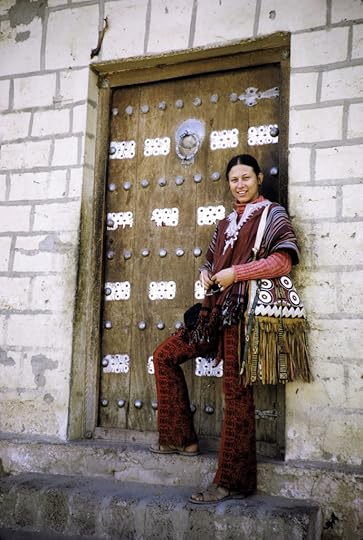
We walked the streets and came upon a mesmerizing door guarding an adobe home. I imagined the once flourishing life in the beauty of that intricately carved solid-wood door with bold hand-casted hinges, a rounded door knocker, and multiple inlaid silver decorations. Those wooden planks may have traveled hundreds and even a thousand miles from the rainforest to beautify and safeguard their home. As I proudly stood next to that magnificent door, wearing my handmade African print bellbottoms with my newly purchased goatskin bag from Bamako slung over my shoulder, Marshall snapped my photo. Timbuktu was real. But behind that majestic door I sensed something so different from 600 years ago. I was overcome with sadness. Perhaps that was why Westerners refer to Timbuktu as a “distant place.” Maybe, a place lost in time.
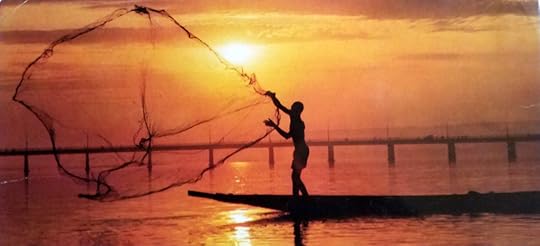
I hoped to mail my brother, Bob, and his family, a postcard from this iconic town. Barb asked, “Who wouldn’t want mail from Timbuktu?” In Bamako I had purchased a stamped postcard of a boy fishing on the Niger River and completed a narrative of my journey in Mali thus far.
We roamed the streets looking for the lone Timbuktu post office and finally came upon an adobe structure with an “envelope” symbol on the door. Barb confirmed it to be a post office and I handed my postcard to a white-robed gentleman at the desk. The mail travels down river by boat to Gao, backtracks by plane to Bamako, on to Dakar, and then to its final U.S. destination via Europe. It should take a month or two to reach Nebraska.
Five months later I completed my service in Liberia and visited my brother Bob and his wife and children back in Nebraska. Here is an excerpt from Part VIII: Back to the Farm, Chapter; The Power of Shame.
I drove six miles down the country roads to Bob and Joan’s house. I held their two children for the first time. Jennifer was dressed in the Liberian shirt I sent her after her birth and Stephanie wore the boots I had knitted in Liberia. They welcomed me with open arms and smiles all around, and gladly accepted my special African gifts. Joan said, “Look at this.” Proudly she held up my postcard they received from Timbuktu—only about two months after I mailed it. We laughed, but it became crystal clear how remote Africa really was.

November 28, 2020
Opposite Ends of the Globe
A Foreign Service Officer stationed at the American Embassy in Tbilisi, Georgia (Central Asia) wrote me for a request. I paused in amazement wondering why I was contacted by this stranger from the State Department. How did he find me?
[image error]
In his quest for authors to endorse his upcoming memoir, Christopher came across my book, In Search of Pink Flamingos, on a Peace Corps website and contacted me. We had both served as volunteers and were the only white people in our remote villages. This seemed to be our common thread.
But our commonalities diverged when I began to read his book. With our large age gap, I could easily be his mother. He came from a city in Wisconsin and had a four-year college degree. He knew himself well enough at age 23 to question his value as a Peace Corps volunteer. I on the other hand was a 19 year old naive, inexperienced farmer’s daughter with a license to be a practical nurse, who was going to conquer the world. We were both assigned to remote villages in countries on opposite ends of the world, 25 years apart. I was stationed in Liberia and Christopher was in the South Pacific on the island of Papua New Guinea.
[image error]
His his memoir later revealed why the universe brought us together. We were both raised in a Catholic household. Family dysfunction was familiar to us. We endured similar challenges in our overseas assignments where we were a novelty to the villagers and lived in a fishbowl environment surrounded by a male dominated culture. We experienced the injustices of the local women, especially those unmarried, and we coexisted with witchcraft practices. After the Peace Corps learned of murders in our area, they offered to remove us from our villages. We both refused.
Perhaps our Western beliefs and values kept Christopher and I on the edge of total acceptance by the villagers. Yet we both discovered a deep love for them that compelled us to write our respective memoirs. 18,000 miles and 25 years that separated our village assignments seemed nonexistent as we lived parallel lives. Ironically, we both came to similar conclusions about our experiences, only in a different country, at opposite ends of the globe, at a different moment in time.
Take a rare look into the village life found in a cloud forest in Papua New Guinea. I encourage you to read The Tin Can Crucible, to be released in December 2020. Click here to purchase the book on Christopher’s website and follow him on his Facebook page.
[image error]
Here is my endorsement for his book,
Davenport’s masterful and lyrical memoir delves into the complexities of his remote village where he strips life and death down to their purest and truest form. His conclusion leaves us with our own values and culture to examine for a long, long time.
– Susan E. Greisen, author of In Search of Pink Flamingos
November 21, 2020
Deportation
So what was I thinking? I felt invincible at age 20 until I was strong- armed by two soldiers each sporting an AK-47. I entered Niger, a country on the edge of the Sahara Desert, without a visa where I didn’t speak the language. So what’s the big deal? This never mattered to me back then in 1973. Here is an excerpt from my memoir, Part VI, Chapter, Deportation:
Out of nowhere two green-fatigued soldiers, each with an AK-47 slung over their shoulders, flanked me and forced me out of the customs line for further interrogation. In a meek respectful voice, I whimpered, “I’m just a Peace Corps volunteer innocently traveling to visit a friend. I won’t be a threat to your country. I…I promise.” When the soldiers’ grip nearly squeezed the blood out of my arms, I realized they took their job seriously.
1 page later I had summoned an American embassy foreign service officer:
Fred said solemnly. “You need to leave. I’m sorry. The customs officer stated you must re-board the plane right now that you arrived on from Mali. This plane will take you to Ouagadougou, the capital of Upper Volta.”
I pleaded, “Please go tell them, one more time, I have no money for a ticket, and I have no visa for Upper Volta.” I wasn’t willing to give up hope. I remained defiant.
2 pages later:
A hush overcame the airport terminal when all eyes turned toward the plane on the tarmac. A man came down the flight stairs, a French pilot in his navy blue slacks, white short-sleeved shirt with red, white, and blue service bars on his shoulders. With purpose in his step he marched twenty-five yards across the landing strip directly up to me, looked sternly in my eyes, and said in perfect English, “Get…on…the plane!”
3 paragraphs later:
Two hours later we landed. I entered the customs line [in Ouagadougou.] I handed the official my Peace Corps passport now stamped with a “Non Admis,” the deportation insignia from Niger on January 4, 1973.
[image error]
Here’s proof with my visa entry. I could have been jailed and had my nails ripped out. Maybe being naive was a blessing. Never once was I scared, only angry and defiant. Oh to be young again…or not. I’m thankful to be able to write this story.
October 30, 2020
I Refuse
I refuse to let the cloud of Covid -19 and the pandemic get me down. Some days it wins, but mostly I rise above it. I actually have much to be thankful for regarding my memoir. Here is one acknowledgment I can add to my resume.
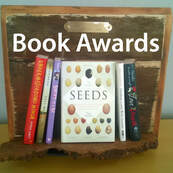
My publisher, (now Sidekick Press) has nominated my memoir, In Search of Pink Flamingos for a 2021 award in the Pacific Northwest Booksellers Association (PNBA). To see my name mentioned with hundreds of other authors from Alaska, British Columbia, Idaho, Montana, Washington, and Oregon is exhilarating. Here I am in the middle of this partial list of the 2021 nominees.
[image error]
I want to thank all of you who have purchased my book and have spread the word to others. The Pink Flamingos are coming up more rosy than I had expected.



